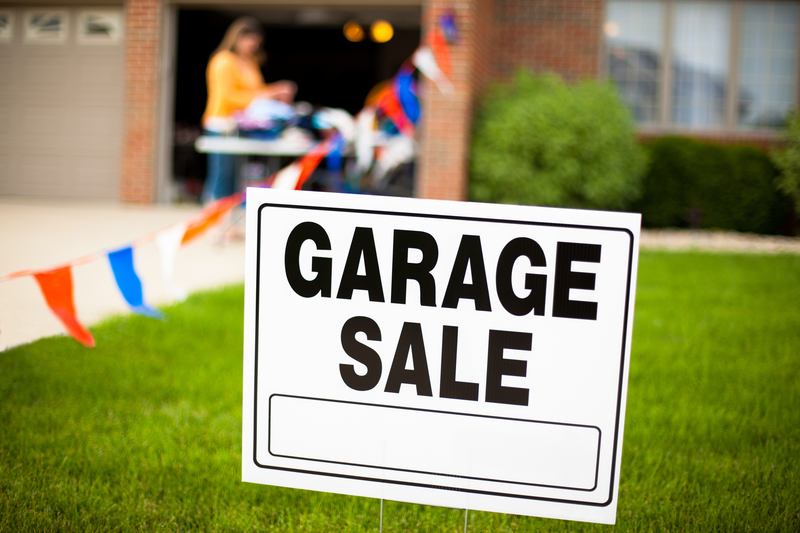How to Minimize Your Expenses on Bulky Waste Pickup
If you've recently renovated your home, upgraded furniture, or performed a major clean-out, you'll likely be facing the daunting task of managing bulky waste. Bulky waste pickup can be expensive, but fortunately, there are practical steps you can take to minimize your expenses while disposing of large items responsibly. This comprehensive guide will explore a variety of strategies to help homeowners, renters, and businesses save money while managing oversized trash efficiently.

Understanding Bulky Waste Collection: What You Need to Know
Before diving into cost-saving tactics, it's important to define bulky waste and understand the common methods of collection.
- Definition: Bulky waste typically includes furniture, mattresses, appliances, carpets, and other items too large for a standard trash bin.
- Pickup Methods: Most municipalities offer large item pickup for an additional fee, while private services may provide scheduled pickups or dumpsters for rent.
- Cost Factors: Expenses can vary depending on the volume, weight, item type, location, and service provider.
Knowing these basics helps you identify where expenses occur, allowing you to better strategize and cut costs wherever possible.
Effective Ways to Save Money on Bulky Waste Pickups
1. Sort and Separate Your Bulky Waste
Start by sorting and separating your items. Many people unknowingly pay more because all items are lumped together, including those that could be recycled, donated, or sold.
- Identify items in good condition: Furniture, bikes, tools, or electronics that are in usable shape can often be given away or sold, reducing the overall pickup load.
- Sort recyclables: Check with your municipality for a list of materials accepted for curbside recycling or at drop-off centers to divert as much as possible from your pickup load.
- Separate hazardous waste: Items like old TVs, monitors, and appliances containing refrigerants may require special disposal steps and fees, so handle these separately to avoid surprise charges.
2. Take Advantage of Free Municipal Services
Many local governments offer free or discounted bulky waste disposal services at specific times of the year. Check your city or county's website for announcements about:
- Annual or semi-annual community cleanup days where residents can drop off large items at no charge.
- Neighborhood bulk waste pickup events requiring advance registration but offered for free or at reduced rates.
- Recycling drop-off centers that accept appliances, metal, mattresses, or electronics for little to no cost.
By planning your purge around these local initiatives, you can significantly reduce or even eliminate your bulky waste pickup costs.
3. Donate, Sell, or Give Away Usable Items
Why pay to dispose of something that someone else might want? One person's trash is another's treasure! Common items that can easily be diverted from the dumping site include:
- Furniture and Mattresses: Many charities, shelters, or thrift organizations accept gently used beds, sofas, and tables. Some even offer free pickup.
- Working Appliances and Electronics: Nonprofits that help low-income families often need fridges, washers, or TVs in good working condition.
- Building Materials: Donating leftover lumber, tiles, or fixtures to Habitat for Humanity ReStores can not only save you disposal fees, but also may qualify you for a tax deduction.
Alternately, try listing items on neighborhood apps like Nextdoor, Facebook Marketplace, or Craigslist. Even if you give something away for free, that's a bulky waste item you no longer have to pay to haul away.
4. Break Down and Compact Large Items
Most bulk trash collection services charge by the size or weight of your pile. By disassembling items (such as bed frames, boxed furniture, or metal shelving), you can condense the load and potentially cut your fees.
- Break furniture into smaller pieces to fit more material into limited pickup space.
- Remove fridge and appliance doors, shelves, and other non-essential parts to cut down on volume.
- Compress mattresses by folding or rolling them tightly, using twine to keep them compact.
The smaller and neater your pile, the lower your bulky waste collection costs in many municipalities.
5. Share the Pickup With Neighbors
Pooling resources isn't just for holidays and block parties! Coordinate with neighbors who also need to dispose of large items.
- If your area allows for group pickups, splitting the service fee among households can dramatically lower the cost per person.
- Collaborate on hiring a private hauler or renting a dumpster to divvy up expenses.
This collective approach is especially cost-effective during renovations, spring cleanings, or when several households are moving at the same time.
6. Compare Different Bulky Waste Pickup Providers
Don't settle for the first quote you receive! Rates for large item disposal can vary significantly between municipal services, private haulers, and junk removal companies.
- Request itemized quotes from several providers and check for hidden fees (fuel surcharges, labor costs, environmental disposal charges, etc.).
- Ask about any additional costs for stairs, elevators, or long carry distances from your residence to the pickup location.
- Check customer reviews for reliability, punctuality, and whether pricing stays as advertised.
A little research goes a long way in finding the most efficient and affordable option for bulky item removal.
7. Consider a DIY Approach
If you're willing and able to handle some heavy lifting, personally hauling your oversized trash to the dump or recycling center can save you significant cash.
- Use your own pickup truck or borrow/rent one for the day.
- Many landfills charge by weight; consolidating items into as few trips as possible helps maximize your savings.
- Combine your trip with regular errands to further save on gas and time.
Always check first which types of bulky waste your local facility accepts, and whether they require proof of residency or charge specific disposal fees.
Advanced Strategies to Minimize Bulky Waste Removal Costs
Opt for On-Demand Removal Only
Some trash companies and cities offer recurring large item pickups incorporated into regular monthly fees. If you rarely need these services, it's more cost-effective to pay for on-demand pickup once or twice a year instead of committing to a higher ongoing rate.
Know the Rules: Avoid Fines and Extra Charges
Ignorance is expensive. Bulky waste disposal policies can be complex, with fines levied for improper preparation or placement of items.
- Review your city's regulations for allowable items, scheduling procedures, and any prep requirements (e.g., covering mattresses, removal of doors from appliances).
- Never leave items curbside outside of approved pickup dates -- illegal dumping can incur heavy fines.
- Bundle or bag small pieces where required, and keep piles tidy to avoid additional labor charges.
By following procedures to the letter, you reduce your waste pickup fees and avoid unwelcome penalties.
Choose Smart Timing for Removal
Some providers offer lower rates during off-peak seasons (often late fall or winter). If your disposal isn't urgent, try to schedule large trash pickups during less popular months when providers may discount their services.
Make Use of Appliance Buy-Back Programs
Many big box retailers and utility companies have appliance recycling programs and will pick up and dispose of your old fridge, washer, or dryer when you buy a new one. Sometimes, they even offer rebates!
- Ask about free removal with delivery of your new appliance or electronics.
- Check for local energy-efficiency programs that pay you to recycle working appliances, offsetting removal costs.
Leverage Bulk Waste Vouchers or Community Grants
Occasionally, cities issue bulky waste disposal vouchers for annual clean-up days. Check with your city council or local environmental office to see if you qualify for free or discounted services.
- HOAs, apartment buildings, or neighborhood groups may also organize group clean-ups with grant funding, saving residents money on large waste removal.

Environmental and Ethical Considerations
While your primary goal may be saving money on bulky waste disposal, consider the broader impact of your actions. Landfills are overburdened, and illegal dumping pollutes the environment.
- Whenever possible, reuse, recycle, or donate to extend the life of your items and avoid unnecessary landfill waste.
- Ask if your local provider diverts materials to recycling centers or charities as part of their process.
- Handling items responsibly now ensures that future disposal regulations and costs won't become even more burdensome.
Conclusion: Save More, Waste Less
*Minimizing your expenses on bulky waste pickup* isn't just about pinching pennies -- it's about working smarter and more sustainably. By planning ahead, sorting your items, taking advantage of free or low-cost community programs, and exploring donation or resale opportunities, you can dramatically cut your large waste collection costs.
Each year, millions pay too much for large item disposal services simply out of habit or lack of information. With creative thinking, responsible management, and the tips above, you can save money, help your neighbors, and do your part for the planet.
Take action today: audit your home for unnecessary items, research your local disposal options, and share these insights with neighbors to make the most of your next bulky waste removal.
Minimizing bulky waste collection expenses is possible -- and with the right approach, it can even be rewarding!
- Plan ahead for bulk pickups and combine loads with others.
- Downsize and donate to give your old items new life.
- Shop around for the most cost-effective removal options in your area.
By using these strategies, you'll keep both your wallet and the environment in better shape -- and make your next big clean-out simpler than ever.